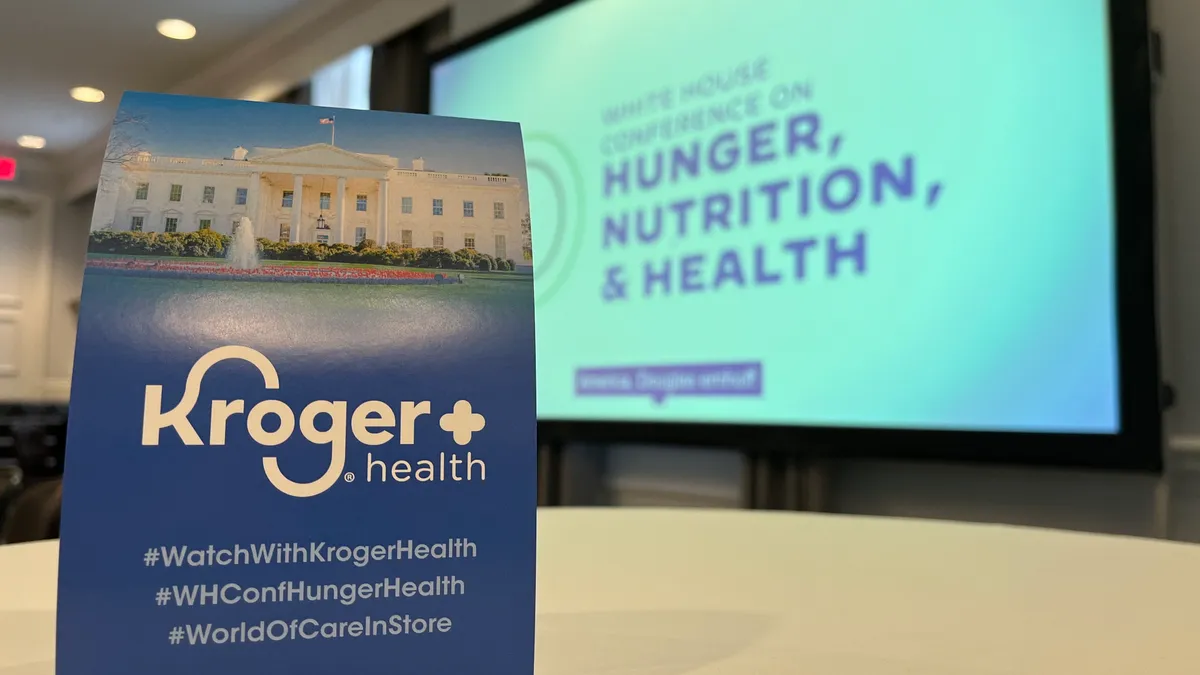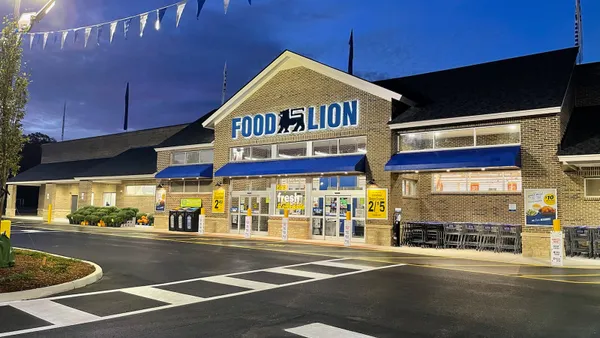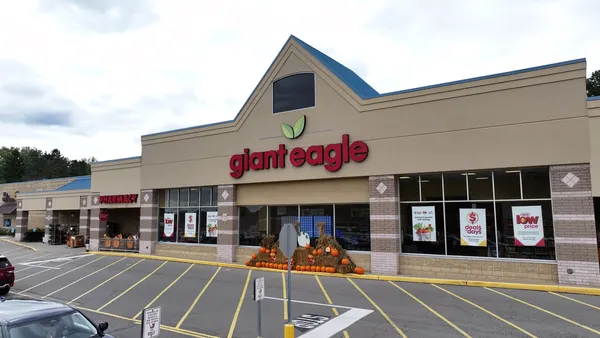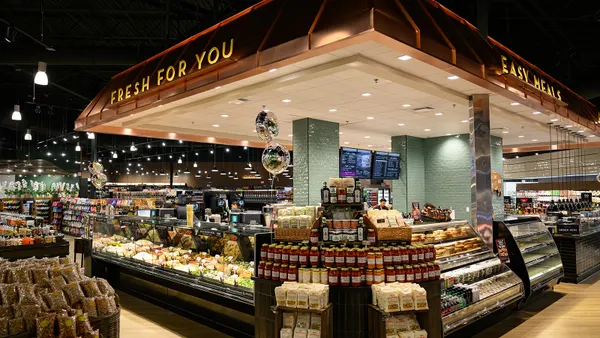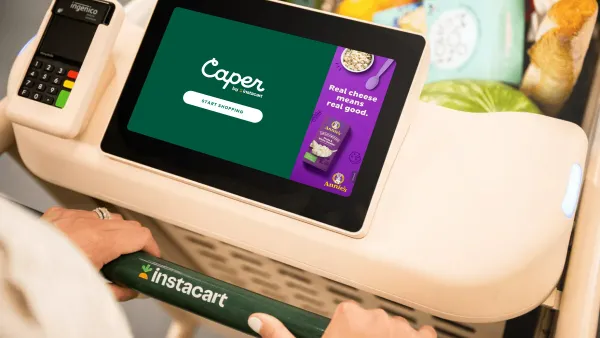The Friday Checkout is a weekly column providing more insight on the news, rounding up the announcements you may have missed and sharing what’s to come.
We were reminded again this week that the biggest names in retail are chasing after healthcare opportunities at a blistering pace.
Kroger’s healthcare business, Kroger Health, announced plans on Tuesday to participate in clinical studies through its in-store health clinics. The company, which operates more than 200 Little Clinics across the U.S., is currently recruiting participants to help research gut and immune health, beginning in the Toledo, Ohio, area.
On the same day, Amazon debuted a generic drug discount program, furthering its venture into the pharmacy business, while Ahold Delhaize-owned Food Lion said yesterday it’s trialing a “food pharmacy” program with a hospital in Wilmington, North Carolina.
This all comes as Walmart is building out its network of health clinics and as Dollar General prepares to offer healthcare services through its network of what feels like 10 billion stores. As retail expert Scott Galloway said recently: “Healthcare is the ripest industry in the world for disruption.”
Digging deeper, grocers are positioning themselves to capitalize on the growing emphasis that healthcare providers and researchers are placing on diet in preventing and even treating diseases.
Kroger, which drops the phrase “food as medicine” at every opportunity, is ramping up numerous programs and funding research aimed at strengthening the connection between food and health. It offers a nutrition scoring program and has tested placing dietitians inside its pharmacies to counsel shoppers. It has also hosted events at some of its in-store bars aimed at educating shoppers about health and nutrition.
That phrase “food as medicine” carries the promise of consumers relying more on grocers to manage their health as well as their weekly shopping needs, and of boosting the value of the in-store pharmacy — a business that has only gotten tougher over the years. But it belies the complex road ahead of getting medical science, insurance companies and business incentives all aligned.
Still, as grocers invest more in digital technologies, loyalty programs, data and product assortment — and all the ways to tie them together — it’s not hard to imagine healthcare becoming another pillar in their evolving ecosystems.
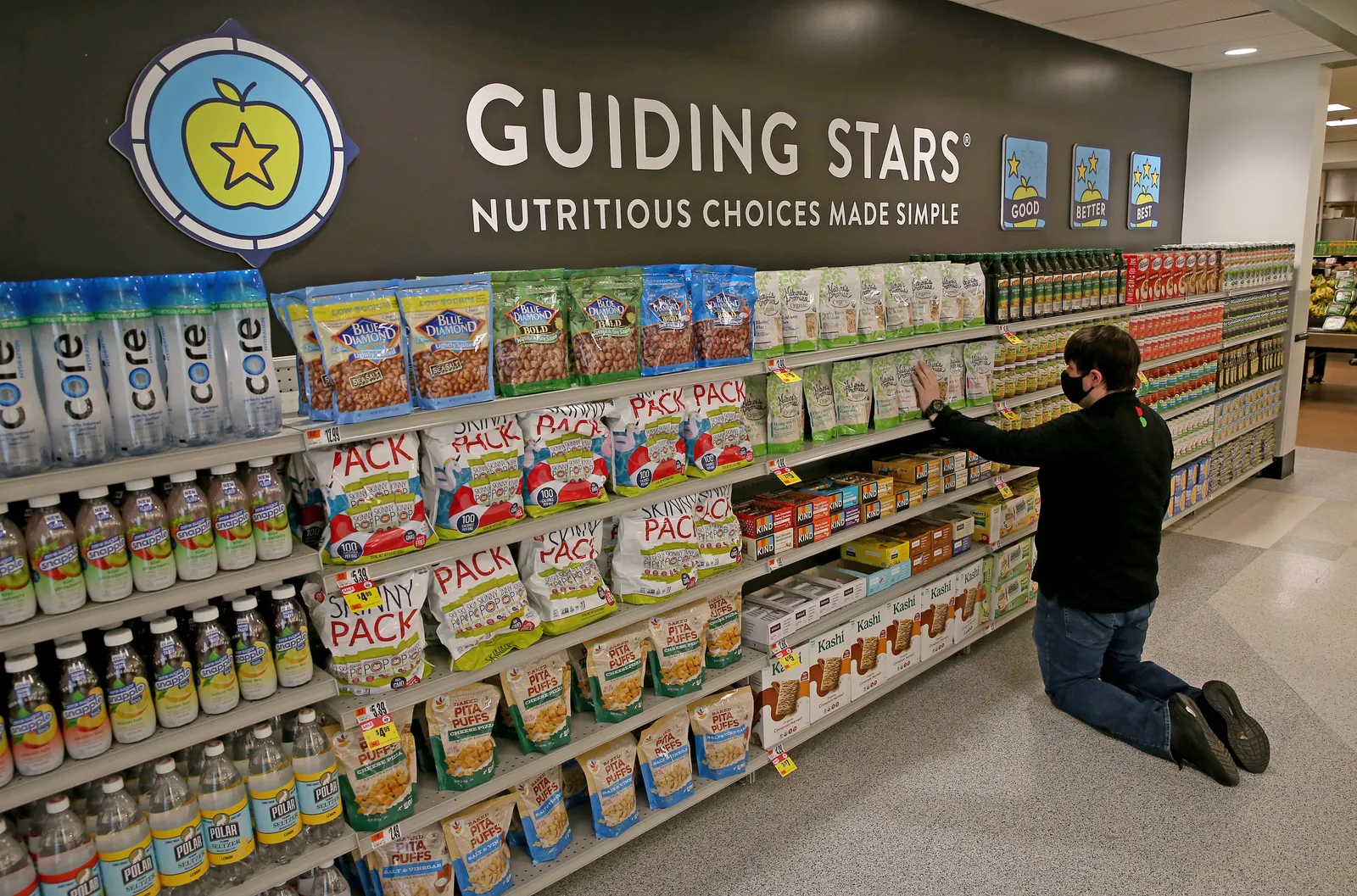
In case you missed it
In-store advertising firms combine
In another sign of the growing prominence of in-store advertising, in-store retail media network Grocery TV announced this week it has acquired Mediaworks Advertising Solutions, which provides sanitizing dispensers that have 32-inch advertising displays attached to them.
The move is part of Grocery TV’s push to offer ad displays throughout the store, according to a company press release, which did not disclose a price tag for the deal. The sanitizer displays will appear at store entrances, and joins other Grocery TV displays that appear at checkouts and in service departments, pharmacies and center store aisles.
Medianetworks’ President Brian Swanson will be joining Grocery TV to supervise the partnership’s expansion and expand Grocery TV’s retail network, the announcement noted.
Aldi’s victory lap
Aldi really likes thumbing its nose at established grocers, as highlighted by a publicity stunt it recently pulled in the U.K.
After being ranked Britain’s cheapest grocer for the second year in a row by consumer research organization Which?, the discounter celebrated by offering free bus rides to shoppers from three rival grocery stores — Tesco, Sainsbury’s and Asda — in Aylesbury, Buckinghamshire, to its own nearby store, according to an Aldi blog post.
The grocer placed bus stops outside the grocery competitors' stores where shoppers were then met with an Aldi-branded Routemaster bus to be directly transported to the Aldi store.

Addie’s opens its first pickup-only grocery store
Pickup-only stores are having a bit of a moment right now.
Addie’s, a drive-up grocery startup, debuted its first retail location in Norwood, Massachusetts, this week, according to a Thursday press release.
The 22,000-square-foot store was designed only for stocking, storing and bagging items, allowing shoppers to purchase their groceries via Addie’s app or website and select a pickup time.
The grocer received $10.1 million in seed funding led by the Disruptive Innovation Fund, part of Clay Christensen’s Rose Park Advisors investment firm, in order to launch its first location, per the announcement.
Startups like Opie, JackBe and Fresh Street have opened pickup-only stores in the wake of the pandemic. But the return of in-store shopping in recent months threatens to keep the format grounded for the time being.
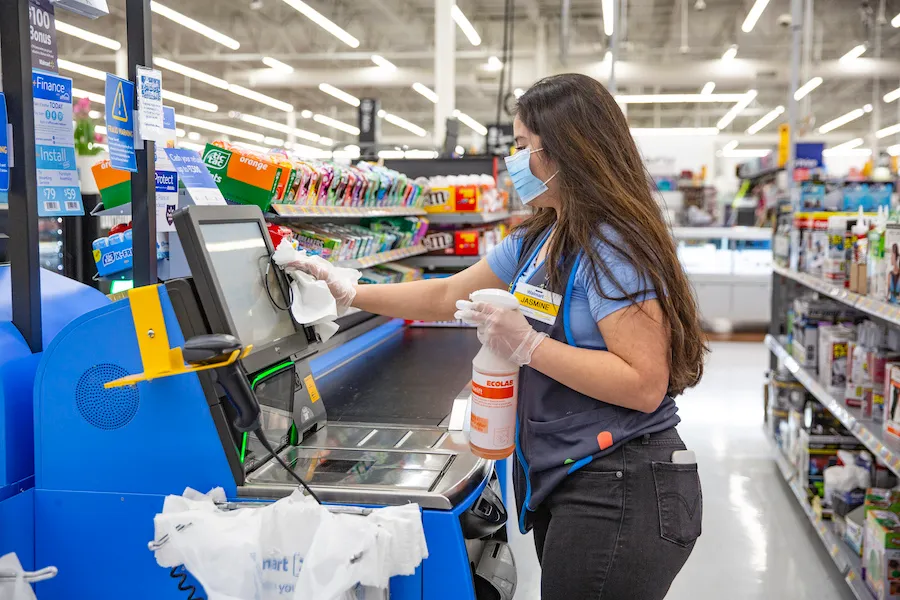
Number of the week: $14
That’s the minimum hourly pay Walmart will provide to workers, starting next month. The retailer’s higher minimum wage will push average wages for about 340,000 Walmart store workers to more than $17.50 per hour, according to the company.
Even with the increase, however, hourly compensation at Walmart will still be below the minimum pay offered by other large retailers. For example, Amazon, Costco and Target all provide a base wage of at least $15 per hour, Reuters noted.
What’s ahead
Jobs report due
The U.S. Bureau of Labor Statistics is scheduled to report employment statistics for January next Friday. The numbers will shed light on whether grocers have been able to sustain the robust pace of job creation they recorded during the final weeks of 2022.


